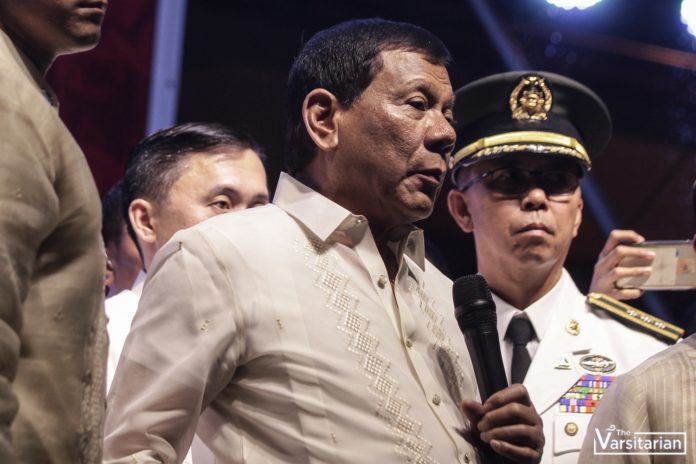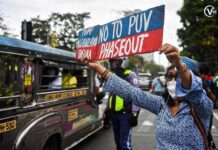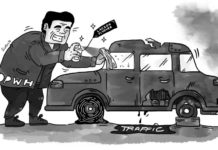CRITICS scored President Rodrigo Duterte’s third State of the Nation Address (SONA) last July 23 where he declared he was “concerned for human rights and not human lives.” The two concepts are inseparable, they pointed out.
“The [drug war] highlights the growing division between the concept of human rights and human life which should not be the case,” Amr Solon Sison, who teaches political science in UST, told the Varsitarian.
Duterte should have addressed the flaws in policies such as the drug war and tax reform, Sison said.
“He could have highlighted… the war on drugs and how it could balance the rights-versus-life relationship. He should have discussed more on how his administration was trying to minimize the negative impact of the [tax reform],” he said in an online interview.
Manila Auxiliary Bishop Broderick Pabillo said Duterte’s speech was mere propaganda and failed to show the “real situation of the country.”
“Drug-related deaths are unacceptable lalo na sa mga mahihirap. Patuloy nating tulungan ang mga drug addicts because this is more than a criminal issue, this is a health issue,” he said in a phone interview.
“[Although] there might be no stopping the drug war, Filipinos should continue the watch and fight against drug-related killings and promote the rehabilitation of drug addicts,” Pabillo added.
Human Rights Watch claims at least 12,000 have been killed in the drug war as of January 2018. Opposition senators claimed in February that the death toll was over 20,000.
Recent figures from the Philippine National Police and the Duterte government placed the number of killings at 7,000 and 4,500, respectively.
Critics, however, acknowledged the Duterte government’s headway against corruption, as manifested in the sacking of a few of his stalwarts in the Cabinet.
Former Justice Secretary Vitaliano Aguirre II was forced to resign because of his controversial dismissal of the complaint against alleged drug lords and his alleged role in the P50-million bribery scandal involving former immigration deputy commissioners Al Argosino and Michael Robles.
Aside from Aguirre, former tourism secretary Wanda Teo was also asked to resign last May following P2.5 billion in questionable transactions by the Department of Tourism.
Still, the 2017 Corruption Index reported that the Philippines ranked 111 out of 180 countries, with a score of 34 that indicated “highly corrupt.”
‘Delayed education subsidy’
The Universal Access to Quality Tertiary Education Act or Republic Act (RA) 10931 was one the administration’s milestones in the previous year. However, delays in the subsidy for students in private universities remain a problem, education sector lawyer Joseph Noel Estrada said.
“The enrollment in the private sector is affected now because students are going to state universities and colleges rather than enrolling in the private colleges,” he said.
Estrada said the Commission on Higher Education (CHEd) lacked resources and expertise to fully implement the law’s “ambitious loan program.”
Under the law, the Tertiary Education Subsidy will fund school fees such as tuition, as well as the books of students enrolled in higher education institutions.
With the growing number of students going to college, the Duterte administration must properly implement its education policies, Estrada added.
“There’s this tendency to over-capacitate these schools with students. If it becomes a problem, then the cost for the government will also be higher because they’ll need to hire more teachers or professors [and] put up more facilities,” he said.
RA 1093, approved by Duterte on Aug. 3, 2017, grants free tuition in state universities and colleges and mandates the government to offer student loans in undergraduate and graduate programs, including review expenses for licensure exams.


















